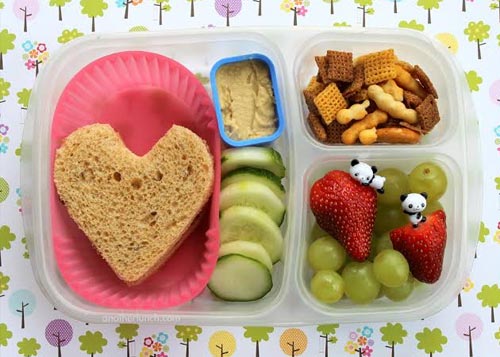Gender roles almost don’t exist in the kids’ world. They wouldn’t question why a man is a nurse or a teacher, or why a woman is working at a construction site or sports a short hairdo. They simply do not see the association of occupation, clothing, appearance, etc. with genders. While this is the case during the tender years of say, 8 years or 10 years, the same cannot be said for an 18-year-old. With time, children see us assign gender roles and copy our behaviour.
Gender roles at home
The roles parents take up at home forms a foundation for a child’s mindset. My husband and I don’t have demarcations as to how we run our home. My husband volunteers to cook, do the dishes, take the garbage out, babysit the kids, etc. and I choose to sometimes change a leaky pipe or fix a light bulb. Older generations may not easily approve of our attitudes but we believe in giving our children an egalitarian attitude as opposed to teaching them outdated gender stereotypes.

What my children see my husband and I take part in, will shape their way of looking at things. During the formative years of my eldest child, Rita, I made sure she knew that she could play football or join basketball if she wanted to. Also, I always tell my sons that they could choose to become a nurse or a school teacher in the future as long as they love doing what they do. I’m not saying that a girl shouldn’t be a teacher or that guys shouldn’t play football. All I’m saying is that we should tell our children that they can be who they want, wear what they like, cry if they’re happy, dress up if they feel like it, and not be influenced by society’s gender-based stereotypes.
Gender stereotypes at social events
You could do everything right at home but outdoor occurrences could alter the mindset, you so carefully shaped for your kids. I had once taken my boys to a friend’s kid’s birthday party. All the decorations were in pink and had pictures of princesses all around for the birthday girl. My sons and I got talking about the specific choice of colour for the birthday girl. My little one, in fact, asked if it was wrong to choose pink as his favourite colour because he’s a boy.
So it is important to constantly talk to your children about egalitarian attitudes so that they recognise situations such as the one we faced at the birthday party. Help your children stay open-minded to all opportunities, irrespective of gender. This way, they will not feel the need to conform to the beliefs of society.
Summing up: What can you do to prevent gender stereotyping in kids?
Buy a combination of masculine and feminine toys for kids
Don’t get only action figurines for your sons and pretty princess dolls for your daughters. Get a combination of both. Allow them to choose what they want to play with or what games they wish to participate in.
Create a gender-neutral space at home
Let your kids know that mothers are not restricted to the kitchen and fathers need not be viewed as the breadwinners. Both, you and your spouse, will also have to take up all kinds of tasks so that your children see your ideologies being executed.
Be mindful of what you say
You should be careful about what you say at all times. Saying “man up” or “boys don’t cry” to boys and saying “you look like a doll” to your girls can have a significant effect on how they think. Children listen carefully to each and every word you utter so be wary of what you say.
Be aware of your kids’ social company
Not all parents would openly accept the egalitarian school of thought and may prefer traditional gender roles. Their children may influence yours so be aware of who your children hang out with. You cannot outright stop them from meeting their children but you can get them to keep you in the loop about the things they discuss. You may also have to intervene when necessary.
Question your kids when they make stereotypical comments
If your child picks up something from school and makes a stereotypical comment about it, talk to them about it. Challenge the thought behind their comment gently and explain why it is incorrect.
Don’t judge kids for their ideas or actions
Lastly, be supportive of your kids and do not judge them for the choices they make. If your child is making a decision that is out of the ordinary and doesn’t agree to common gender roles, have a peaceful discussion about it and try not to criticize.

The key to creating a healthy mindset in children is to reiterate the positives and discuss their thoughts and actions about gender roles as and when necessary.








One Response
Thank you for talking about this. Not many realize how serious this issue is!